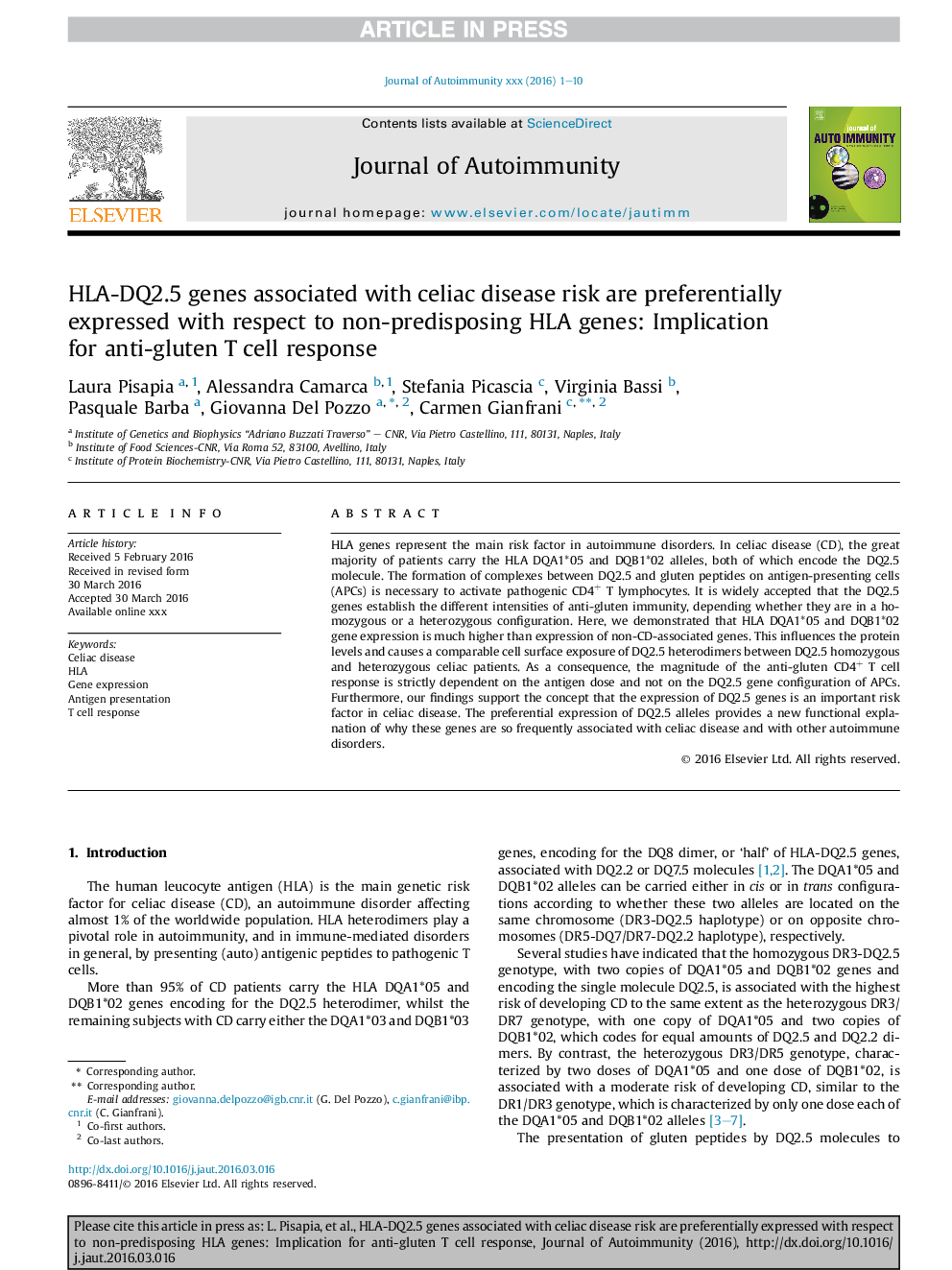| کد مقاله | کد نشریه | سال انتشار | مقاله انگلیسی | نسخه تمام متن |
|---|---|---|---|---|
| 6119114 | 1592279 | 2016 | 10 صفحه PDF | دانلود رایگان |
عنوان انگلیسی مقاله ISI
HLA-DQ2.5 genes associated with celiac disease risk are preferentially expressed with respect to non-predisposing HLA genes: Implication for anti-gluten T cell response
دانلود مقاله + سفارش ترجمه
دانلود مقاله ISI انگلیسی
رایگان برای ایرانیان
کلمات کلیدی
موضوعات مرتبط
علوم زیستی و بیوفناوری
ایمنی شناسی و میکروب شناسی
ایمونولوژی
پیش نمایش صفحه اول مقاله

چکیده انگلیسی
HLA genes represent the main risk factor in autoimmune disorders. In celiac disease (CD), the great majority of patients carry the HLA DQA1*05 and DQB1*02 alleles, both of which encode the DQ2.5 molecule. The formation of complexes between DQ2.5 and gluten peptides on antigen-presenting cells (APCs) is necessary to activate pathogenic CD4+ T lymphocytes. It is widely accepted that the DQ2.5 genes establish the different intensities of anti-gluten immunity, depending whether they are in a homozygous or a heterozygous configuration. Here, we demonstrated that HLA DQA1*05 and DQB1*02 gene expression is much higher than expression of non-CD-associated genes. This influences the protein levels and causes a comparable cell surface exposure of DQ2.5 heterodimers between DQ2.5 homozygous and heterozygous celiac patients. As a consequence, the magnitude of the anti-gluten CD4+ T cell response is strictly dependent on the antigen dose and not on the DQ2.5 gene configuration of APCs. Furthermore, our findings support the concept that the expression of DQ2.5 genes is an important risk factor in celiac disease. The preferential expression of DQ2.5 alleles provides a new functional explanation of why these genes are so frequently associated with celiac disease and with other autoimmune disorders.
ناشر
Database: Elsevier - ScienceDirect (ساینس دایرکت)
Journal: Journal of Autoimmunity - Volume 70, June 2016, Pages 63-72
Journal: Journal of Autoimmunity - Volume 70, June 2016, Pages 63-72
نویسندگان
Laura Pisapia, Alessandra Camarca, Stefania Picascia, Virginia Bassi, Pasquale Barba, Giovanna Del Pozzo, Carmen Gianfrani,